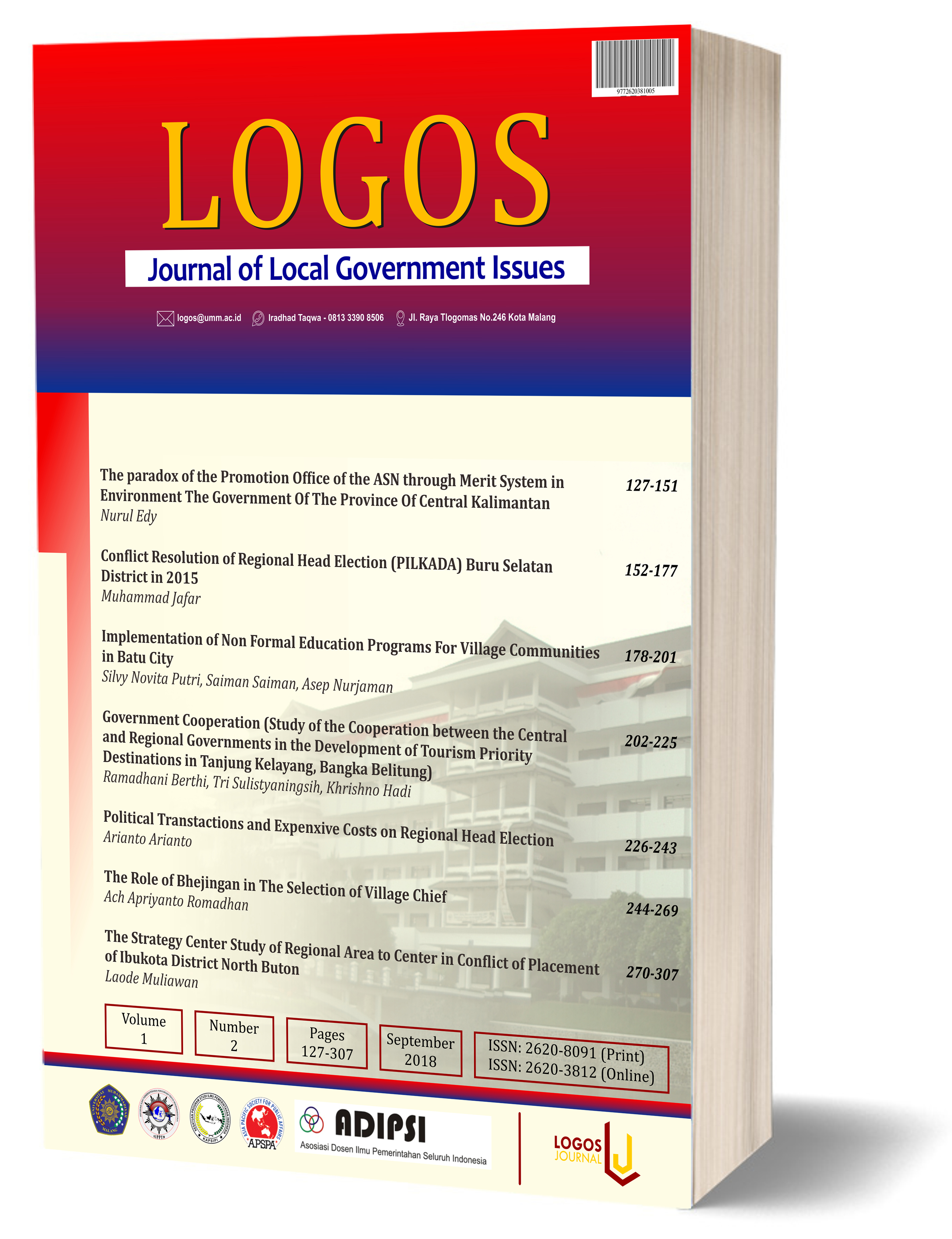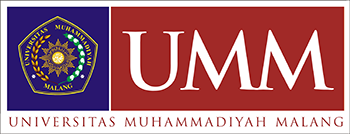Political Transtactions and Expenxive Costs on Regional Head Election
DOI:
https://doi.org/10.22219/logos.Vol1.No2.226-243Abstract
Once the proliferation of regional head elections in Indonesia recently shows that our society many are interested to become a head of the region because there is recognition of its existence within the community so that competing both from the bureaucrats and from the private or legislative.The political costs incurred are not written so it is very difficult to identify how much each party pegs the price is not the same depending on the number of seats in the legislature or the amount of support available in the region or the networks that belong to the village will be different from the new party. Likewise, if through an independent channel, so much money must be spent to get administrative support from the community as from certain groups or individual, not to mention the cost of campaigns that must be issued by the candidate pair, almost not comparable if calculated by the salary of a regional head with the cost incurred, but it is still many who are interested to become a governor or mayor.Various studies conducted by many experts show, even though democracy is something that deserves to have aspired, it turns out that democracy produces many problems, even new problems that would not exist if not practiced democracy. Legislation has not regulated and limited the expenditures of candidates before and after the campaign, how much money is spent before and after the campaign, so it cannot be supervised. Supervision conducted by Banwaslu, PPATK and law enforcement officers is still not effective because there are still many gaps that can be done by a regional head in different ways and tactics.
Key Words: Money Politics, Democracy, Political Monitoring.
Downloads
References
Adian, D. G. (2010). Pengantar fenomenologi: Penerbit Koekosan.
Awaludin, Z., Moo, J. G. S., Okajima, T., & Ohsaka, T. (2013). TaO x-capped Pt nanoparticles as active and durable electrocatalysts for oxygen reduction. Journal of Materials Chemistry A, 1(46), 14754-14765.
Bourdieu, P. (1989). Social space and symbolic power. Sociological theory, 7(1), 14-25.
Duverger, M. (2012). The study of politics: Springer Science & Business Media.
Eko, S. (2004). Modal Sosial, Desentralisasi dan Demokrasi Lokal. dalam Jurnal Analisis CSIS, 33(3).
Fahmi, C. (2014). Pemetaan Konflik Sosial Kabupaten Aceh Tengah. Banda Aceh: Dinas Sosial Provinsi Aceh.
Fitriyah, M. (2013). Fenomena Politik Uang Dalam Pilkada. Politika: Jurnal Ilmu Politik, 3(1), 5-14.
Gunawan, W., & Yani, A. (2008). Hukum Tentang Perlindungan Konsumen: Cetakan Keempat, PT. Gramedia Pustaka Utama, Jakarta.
Huntington, S. P. (1996). Democracy for the long haul. Journal of democracy, 7(2), 3-13.
Irham, M. (2016). The spatial distribution of bed sediment on fluvial system: A mini review of the Aceh meandering river. Aceh International Journal of Science and Technology, 5(2).
Jenkins, K., McCauley, D., Heffron, R., Stephan, H., & Rehner, R. (2016). Energy justice: a conceptual review. Energy Research & Social Science, 11, 174-182.
Mietzner, M. (2007). Party financing in post-Soeharto Indonesia: between state subsidies and political corruption. Contemporary Southeast Asia, 238-263.
Newton, K., & Van Deth, J. W. (2016). Foundations of comparative politics: Cambridge University Press.
Pahlevi, M. E. T. (2018). Political Influence Of Ka’bah Youth Movement (Gpk) In 2017 Mayoral Election Of Yogyakarta.
Downloads
Published
How to Cite
Issue
Section
License
Copyright (c) 2018 Arianto Arianto

This work is licensed under a Creative Commons Attribution-ShareAlike 4.0 International License.
Authors who publish with this journal agree to the following terms:
- Authors retain copyright and grant the journal right of first publication with the work simultaneously licensed under a Creative Commons Attribution-ShareAlike 4.0 International License. that allows others to share the work with an acknowledgment of the work's authorship and initial publication in this journal.
- Authors are able to enter into separate, additional contractual arrangements for the non-exclusive distribution of the journal's published version of the work (e.g., post it to an institutional repository or publish it in a book), with an acknowledgment of its initial publication in this journal.
- Authors are permitted and encouraged to post their work online (e.g., in institutional repositories or on their website) prior to and during the submission process, as it can lead to productive exchanges, as well as earlier and greater citation of published work (See The Effect of Open Access).

This work is licensed under a Creative Commons Attribution-ShareAlike 4.0 International License.













